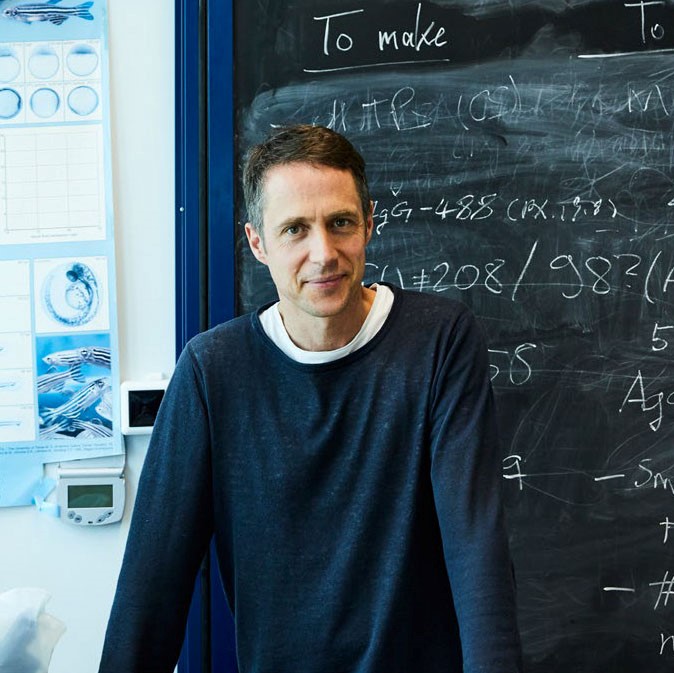September 9, 2019
Carus Medal awarded to IST Austria professor Carl-Philipp Heisenberg
Leopoldina commends Heisenberg’s research achievements in the field of developmental biology – Award ceremony on September 20, 2019
The German Academy of Sciences Leopoldina awards this year’s Carus Medal to IST Austria developmental biologist Carl-Philipp Heisenberg for his outstanding research achievements. The award will be presented at the opening ceremony of the annual Leopoldina meeting on Friday, September 20, 2019, in Hall (Saale), Germany.

Developmental biologist Professor Carl-Philipp Heisenberg (born 1968) studies the embryonic development of vertebrates. He asks: Which processes control form and shape of an embryo? As a model organism for his research, he uses the zebrafish whose early development is very similar to that of humans. Heisenberg is interested in molecular and biophysical processes happening after the division of the fertilized egg, when cell migration, cell adhesion and cell polarization play a critical role. These processes are the foundation for the development of multicellular structures such as tissues and organs. His research refuted the thesis that cell adhesion is primarily responsible for cell sorting during gastrulation. In more recent works, Heisenberg and his team are increasingly focusing on biophysics. Hereby, he was able to prove that mechanical forces play a significantly greater role in embryogenesis than previously known. His research is characterized by its multidisciplinary approach at the interface of cell biology, developmental biology and biophysics. The fundamental work from Heisenberg’s research group has great potential to impact developments in medicine as immune and cancer cells have many similar properties to embryonic cells.
Carl-Philipp Heisenberg studied biology at the Ludwig-Maximilians-University in Munich and completed his doctorate in the group of Nobel laureate Christiane Nüsslein-Volhard at the Max-Planck-Institute for developmental biology in Tübingen in 1997. In 2001, he became research group leader and Emmy Noether Junior Professor at the Max-Planck-Institute for Molecular Cell Biology and Genetics in Dresden. In 2010, he started as a Professor at the Institute of Science and Technology (IST) Austria in Klosterneuburg. Heisenberg received an ERC Advanced Grant in 2017 from the European Research Council and, in the same year, the “Würdigungspreis” from Lower Austria. Since 2015 he has been a member of the Leopoldina. In 2018, he joined the Board of Reviewing Editors of the renowned journal Science.
The Carus Medal was created in the honor of the 50th anniversary of the XIII. Leopoldina academy president, Carl Gustav Carus (1789–1869) and was awarded for the first time in 1896. The medal recognizes important scientific discoveries or research achievements of young researchers in one of the areas represented by Leopoldina. Previous winners include Jacques Monod (1965), who in the same year won the Nobel prize for physiology or medicine, Christiane Nüsslein-Volhard (1989), who received the Nobel prize for physiology or medicine in 1995, and Stefan Hell (2013), who received the Nobel prize for chemistry in the following year. Since 1961, the Carus Medal is connected with the Carus prize from the city of Schweinfurt – founding place of the Leopoldina—and complemented with 5,000 Euro. In 2019, two Austrian researchers will receive the Carus Medal, the second one being computer scientist Monika Henzinger from the University of Vienna.



